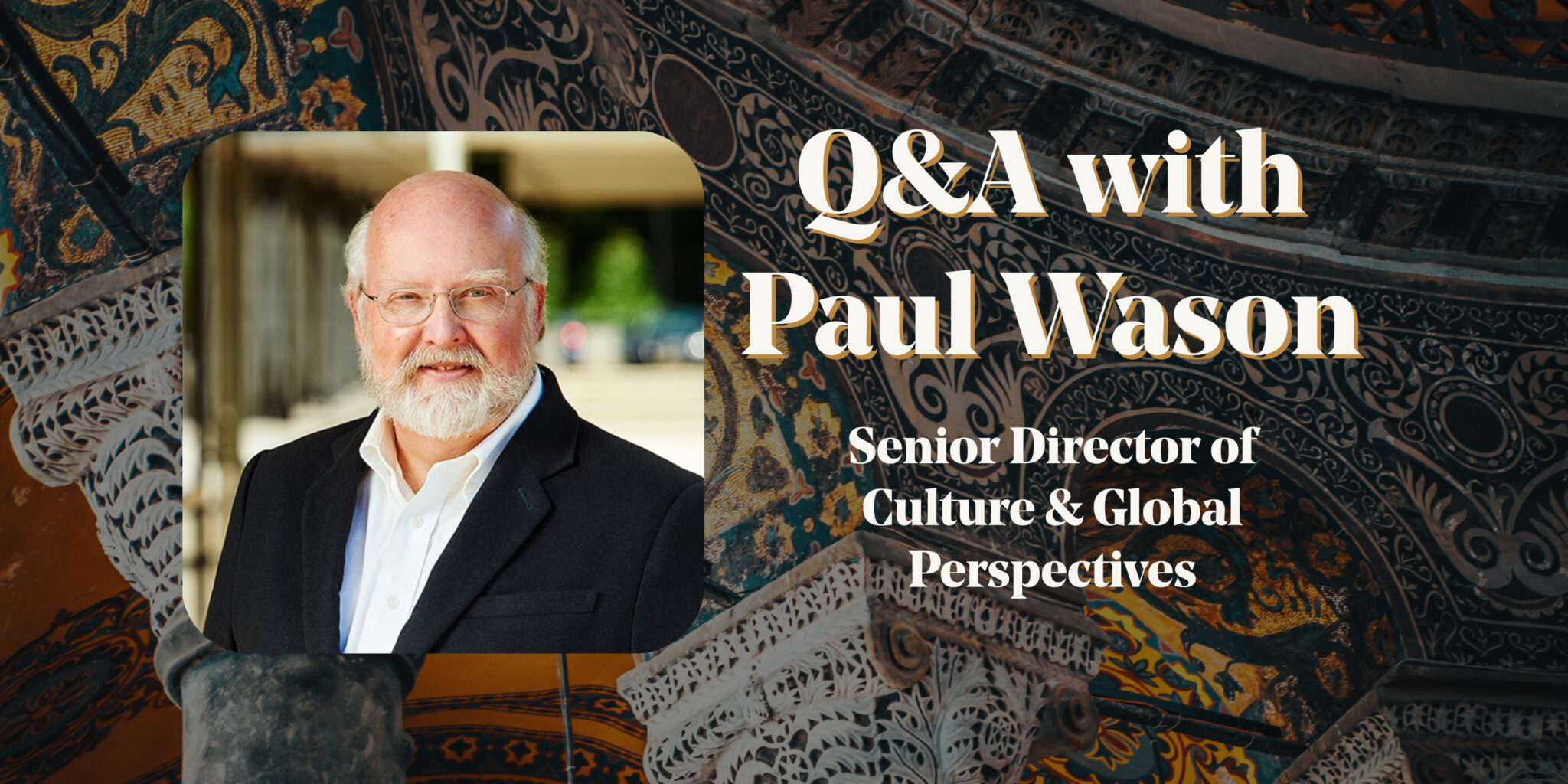We recently sat down with John Templeton Foundation staff member, Paul Wason, Senior Director of Culture & Global Perspectives programs, to discuss the Foundation’s interests in and goals for its cultural evolution research priority.
To get started, why don’t you share a little about yourself — when did you first develop an interest in cultural evolution research?
As an undergraduate biology major, I read E.O. Wilson’s Sociobiology in a seminar just after it came out in 1975. It garnered a mixed reception of acclaim and consternation. It claimed that culture was ultimately a manifestation of biology, and that human behavior, like that of other animals, could be best understood through the lens of evolutionary theory. That fall as a new grad student in anthropology, I learned that many in the field were not impressed and resented the intrusion into their field. To them, not only was culture unique to humans, it was completely distinct from biology.
Cultural evolution studies have come a long way. And while critiques of Wilson were not all misplaced, it is evident that biology does influence both human and animal culture; simultaneously, culture itself plays an active role in shaping the course of biological evolution. It is a reciprocal relationship.
How would you describe our work related to cultural evolution? And what are the goals of this priority?
It started with archaeological projects, particularly the work of Ian Hodder in Çatalhöyük. It sought to understand cultural evolution in prehistoric times, including the earliest evolution of religion, and religion’s role in the cultural transformation of the Neolithic.
Our current focus of cultural evolution studies to find out more about the role of culture in human life, how cultures change, and how we might shape our cultures in a way that will enable people to thrive in the midst of an uncertain future.
What big questions drive research in this area?
What is the role of culture in human affairs? How do particular cultures shape how we think, what we think about, and even how we ask questions?
How do cultures change, and what are the cumulative effects of cultural change? How do we apply what we are learning to actively shape how we respond to global challenges? How do social media and other new technologies affect our self-understanding, and what can we learn by studying more broadly how we humans adapt to the environments we build for ourselves? What we think it means to be human has a great influence on what kinds of initiatives our society might undertake.
What is particularly exciting to you about this work?
It complements other work we are already supporting. In psychology, for instance, there is interest in better understanding how humans think and what affects our thoughts. With good reason this often focuses on individuals. A study of the role of culture in shaping us as individuals and as communities adds another element.
Human resilience is an important area of study — how do people bounce back after trauma? Cultural evolution adds richness to that research. Are certain cultures, or aspects of cultures, more resilient than others? How do cultures affect individual resilience? What is the role of cooperation in relation to disaster recovery? Who do you cooperate with in the midst of crisis, and what does cooperation entail?
We want to investigate places and peoples that are really thriving and succeeding in today’s geopolitical climate. Ethnographic studies may yield insights that could complement and add context to more quantitative research of other fields and other branches of cultural evolution.
What are some interesting developments underway now?
One example, sticking with the ethnography point, would be the work of Serah Shani who studies the Maasai in Kenya, a people widely considered to be among the more successful at navigating between their traditional and contemporary contexts. She is focused specifically on how parents impart their moral values and conscience in their children in a rapidly changing period of history. She is studying three kinds of villages: those in close proximity to and regularly in contact with a city, intermediate distance, and isolated areas. How do they negotiate the pressing interaction of vastly different cultures?
David Sloan Wilson, founder of PROSOCIAL, facilitates guided cultural evolution. How do you help an organization — such as a hospital or school — become more cooperative and change their organizational culture for the better? It’s not just a matter of making new rules, but adopting core design principles that help them achieve their goals.
We are also working on the question of what role culture change might have in addressing contemporary issues that are being exacerbated by climate change. An organization with similar goals, The Institute for Ecological Civilization, is helping us uncover suitably important questions among the many we might consider. Ultimately, on a societal and individual level, we need to change how we live, not just hope for technological fixes to maintain the status quo.
Where would you like to see this field in five years? What questions do you hope we’ll be asking then?
There are important aspects of culture change, already in the core of research in cultural evolution, that we need to understand better. Culture affects biology, and biology affects culture. These are reciprocal relationships, and one cannot be reduced to the other. Major elements of the extended evolutionary synthesis, such as niche construction, show great potential. It will also be important for cultural evolution research to draw more deeply on the methods and findings of ethnography. Currently, the field of cultural evolution thinks of itself more like biology, and while this is surely a major source of its current vitality, we need to incorporate other perspectives and approaches to appreciate this complex area.
In addition, I would hope that over time more scholars in the field will come to appreciate that their work could be of great value in addressing contemporary issues, and of course that those in policy and other fields will also recognize this.
What should people interested in applying for funding know? What are you looking for – and just as importantly, what are you not looking for?
What we’d like to see is research that uses findings or methods of cultural evolution in ways that could be adapted, directly or indirectly, to practical applications, assisting policymakers and non-profits trying to make a difference in people’s everyday lives. This can draw on any of a wide range of topics, and even fields, and the research itself needn’t have a practical element as long as it adds depth to our understanding of cultural dynamics that could potentially have such value. We want to take advantage of what we’ve already learned about ourselves, our cultures, and our behaviors to change for the better.
Additionally, we’d like to increase the participation of underrepresented communities in research. Human culture takes so many forms that it’s essential to bring many unique perspectives to the table. Well-trained scholars with differing cultural perspectives will ask questions differently, seek different ways of answering them, and could contribute more to our understanding of how to approach the future.
Still Curious?
Explore featured grants from Culture & Global Perspectives.
-
The Cultural Evolution Of The Conscience, Virtues, Character Development, And Human Progress
-
Islamic Pluralism: Learning To Live With Deep Differences In Religiously Polarized Contexts
This feature is part of our series of staff spotlights. Stay tuned for future articles, which will be released monthly.

